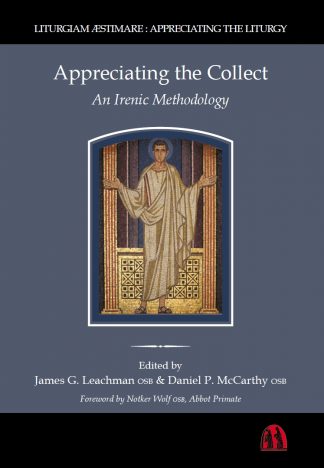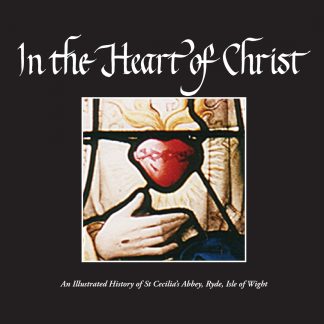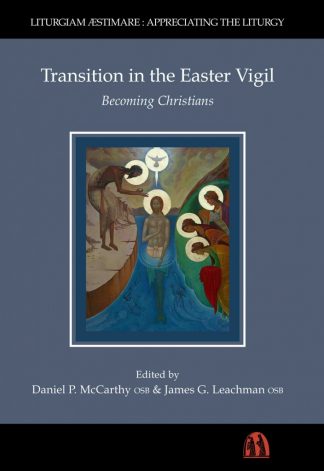Description
How has the Liturgy of the Roman rite developed and changed in history before and after the Council of Trent? What principles have determined the boundaries of legitimate liturgical reform over the centuries? What was the Liturgical Movement? Did Gu�ranger, Beauduin, Guardini, Parsch, Casel, Bugnini, Jungmann, Bouyer and the Movement�s other leaders know and respect these principles? And what is to be said of the not insignificant liturgical reforms carried out by Saint Pius X, Popes Pius XI and Pius XII and Blessed John XXIII in the course of the twentieth century? What principles of reform did the Liturgical Movement espouse on the eve of the Second Vatican Council? In The Organic Development of the Liturgy Dom Alcuin Reid examines these questions systematically, incisively and in depth, identifying both the content and context of the principle of �organic development��a fundamental principle of liturgical reform of Vatican II�making a significant contribution to the understanding of the nature of the Liturgical Movement and to the ongoing re-assessment of the reforms enacted following the Council.
Dom Alcuin Reid was a Benedictine monk of St Michael�s Abbey, Farnborough. Reviews “Just as a gardener cares for a living plant as it develops, with due attention to the power of growth and life within the plant, and the rules it obeys, so the Church ought to give reverent care to the Liturgy through the ages, distinguishing actions that are helpful and healing from those that are violent and destructive. If that is how things are, then we must try to ascertain the inner structure of a rite, and the rules by which its life is governed, in order thus to find the right way to preserve its vital force in changing times, to strengthen and renew it. Dom Alcuin Reid�s book takes its place in this current of thought� This book, which offers a wealth of material, teaches us some criteria and invites us to further reflection. That is why I can recommend this book� Joseph Cardinal Ratzinger “A useful, timely and impressive volume, which sets a historical framework to a Roman Liturgy that has developed over the two millennia of Christianity.” The Catholic Herald �Dom Alcuin�s latest work�places him amongst the foremost liturgical authorities in the English-speaking world; indeed, I would go further and state that it makes him the foremost liturgical authority� The Organic Development of the Liturgy is a book which should be owned by every priest, seminarian and Catholic layman who is devoted to the liturgical treasury of the Roman rite.� Michael Davies Mass of Ages Dom Alcuin “has packed into this study the fruits of prodigious research. No valid source has been neglected and he has assiduously sought out and assessed much relevant material of which few of us knew the existence…” An “extraordinarily thorough and rewarding analysis of such an important aspect of Catholic History.” Association for Latin Liturgy A “scholarly but accessible study of how the Roman liturgy developed up to Vatican II” which “with deep respect for tradition…indicates the limits of change, boundaries set by the sources, principles and texts of the liturgy as it has unfolded.” Monsignor Peter J Elliott AD2000 An “incisive and well documented study.” London Oratory Magazine A “magisterial exposition of the organic development of the Liturgy” Faith Magazine “This study is at once a fascinating overview and edifying historical tour of its subject. From the earliest liturgical developments through to the Mediator Dei of Pius XII, Dom Alcuin introduces the reader to the thoughts, themes and players in the great developments of Catholic worship. If you want to understand the significance of the Carolingian reforms or the errors of the Gallicanism, this is a good place to start. If you don�t, that�s probably because you don�t know that such ignorance is why the Church is having to fight the old battles all over again� From Aquinas to Newman, from the Council of Trent to the eve of Vatican II, this book gives a concise and fascinating account of the principal vocation of man � to glorify God. If its implied assessment of the vehicles of the last forty years is critical, it is because the author understands that radical discontinuity is often doctrinally destructive and pastorally unhelpful. This book is an eloquent and scholarly plea for a review of where we have got to, not just in the light of ecclesiastical politics of the late twentieth century, but in the long view of the history of the people of God. If you want to understand the debate, this is a good place to start.” New Directions Saint Michael’s Abbey Press 336pp. paperback




